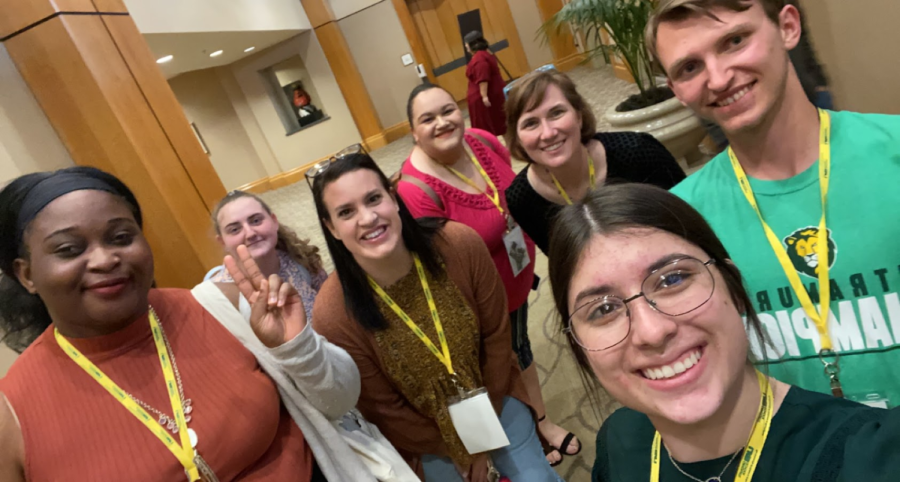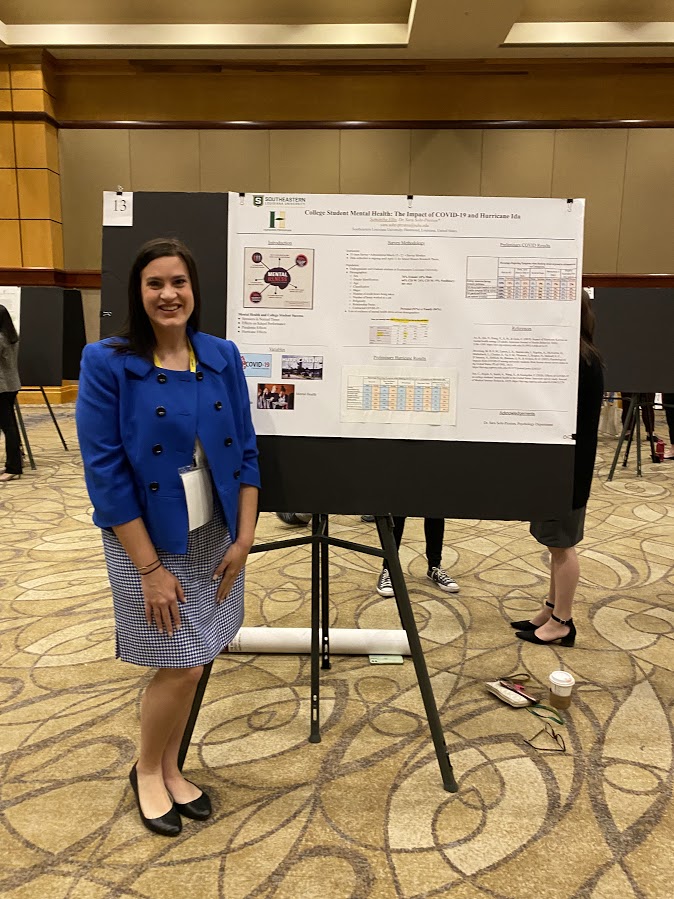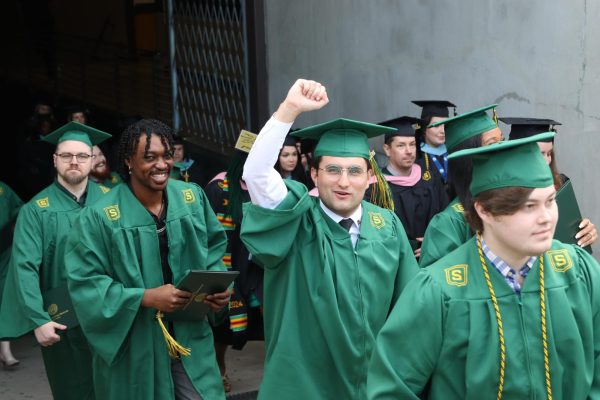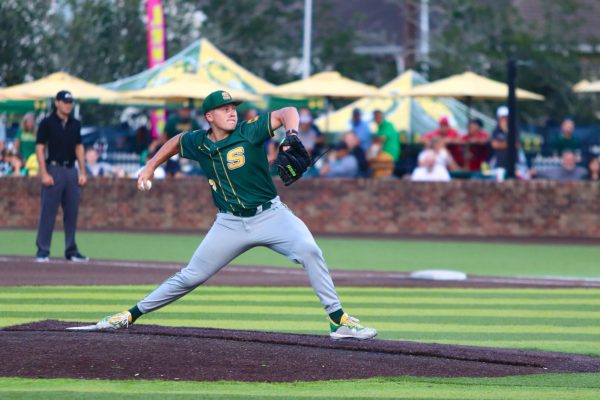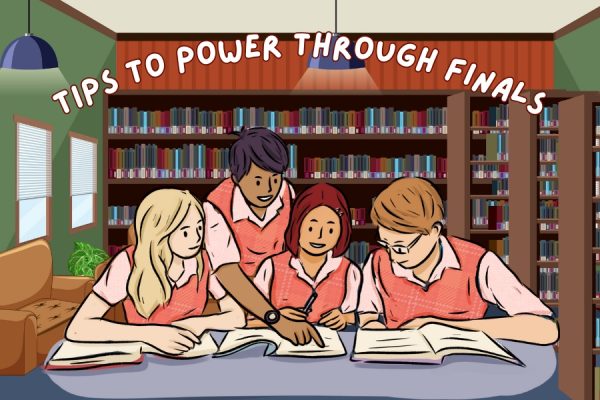Honors students make a mark at Southern Regional Honors Council annual conference
Six Honors students represented Southeastern at the SRHC in Alabama from Thursday, March 31 to Saturday, April 2.
Honors students gave five presentations at this year’s conference. Joshua Freeman and Dorothy St. Pierre presented a discussion-led presentation on Thursday, Mercy Agbo, Victoria DeBarbieris and Harley Garlick presented their posters Friday, and Samantha Ellis presented her poster Sunday.
Honors Program Director Claire Procopio said, “I felt like Southeastern was well represented. They had the opportunity to see students from some powerhouse honor programs from the south and our students held their own.”
Part of what made this conference possible was a grant from the Student Government Association.
“The grant paid for the students’ conference registration, so we really appreciate them making that opportunity possible for students to get to present their research,” Procopio said.
The grant from SGA made the presentations possible. Freeman and St. Pierre were the first out of the honors students to present.
Procopio said, “I think Josh and Dorothy’s presentation on the Marvel Multiverse was probably one of the most popular presentations at the event. Josh and Dorothy were having fun running the conversations; It was really fun to see them command a room which is a good skill to have in graduate school.”
Freeman, a senior sport management major with a minor in athletic coaching, gave his insight on the Marvel multiverse concept through a discussion-led presentation.
He said, “Dorothy and I are both big fans of Marvel, so when Dr. Procopio mentioned that the hosted discussion can be about a relevant topic, we jumped at the opportunity. This presentation gave us an opportunity to take a break from the grind of the semester and be able to connect with like-minded Honors students throughout the region.”
The Marvel presentation was the only one out of the other honor students to not have a poster. This presentation was conversation-based.
St. Pierre, a junior art-photography major, said, “The presentation was more about the concept of the multiverse and if it is a good or bad idea for the MCU.”
“We started off by splitting the room up based on their favorite characters. We had three groups for the Big 3 (Iron Man, Captain America, and Thor) and then the fourth was for all others. We then asked the room a series of questions based on different issues surrounding the Multiverse such as ‘Does the Multiverse weaken the character’s sacrifice/death?’ or ‘Does the creation of the Multiverse alienate the causal fans?’ Each group would then discuss our questions amongst themselves for a few minutes and share their opinions with the entire room,” Freeman said.
This presentation was Freeman’s favorite part of the trip. He said this experience was truly unforgettable.
St. Pierre said, “It was very rewarding. I feel like Josh and I did a great job with our presentation, and everybody loved it. Everyone talked about it the whole weekend and kept coming up to us to talk more about marvel or just about how much they loved our presentation. Multiple people said they wished that we had more time.”
The other four presentations were given via a poster. Two of the four were projects from Professor Benjamin Wicker’s freshman honors chemistry class.
DeBarbieris, a freshman integrative biology major, gave her presentation on hemiplegic migraines. This was her second presentation on the topic, with the first being last December where she presented for about an hour on the Gathertown app.
“I have this and basically, this is a migraine attack that causes hemiplegia. Once I got into Wicker’s class I wanted to know why and the project had to be chemistry-related. As I dug into it, I found that it was due to Calcium channels,” DeBarbieris said.
She explained the calcium channels open and close to regulate calcium, but when she has a migraine attack her channels stay open. Her main question was “How do we stop it?”
DeBarbieris said, “There are calcium blockers that exist, but that would permanently close the calcium channels which creates the same problem. There is a need for a medicine that temporarily closes it.”
According to her research, most medicines are symptom-based, but not long-lasting.
This is a very rare condition and a few nurses and doctors at the conference have not heard of it before.
DeBarbieris said, “I was speaking to some nurses and medical doctors about it because they had never heard about it before. I thought that was the coolest part because I’m going to impact other people; That doctor may go to the hospital and get a patient with hemiplegic migraines and know what it is.”
The other two presentations were given by seniors who presented what is going to be their senior honors thesis.
Procopio said, “This was a good experience for them to present before defending their thesis after the Easter break.”
This trip was also filled with museum tours to the Birmingham Civil Rights Museum and Birmingham Museum of art.
The south was shocked and entertained by our honors students’ presentations, some may even say they were out of the universe.
Your donation will support The Lion's Roar student journalists at Southeastern Louisiana University.
In addition, your contribution will allow us to cover our annual website hosting costs.
No gift is too small.
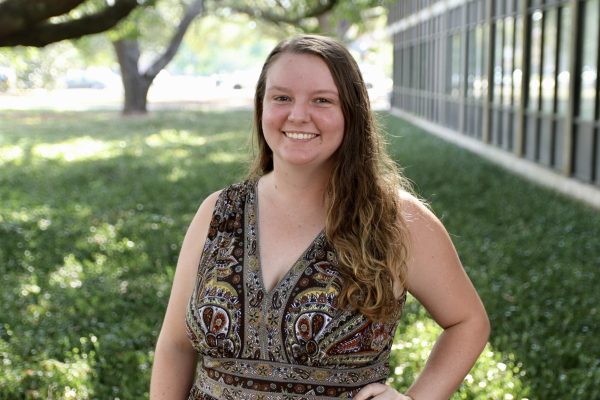
Hydee Holsapple is an integrative biology major with minors in chemistry and communication. She has been with The Lion's Roar team since Feb. 2022 and...


